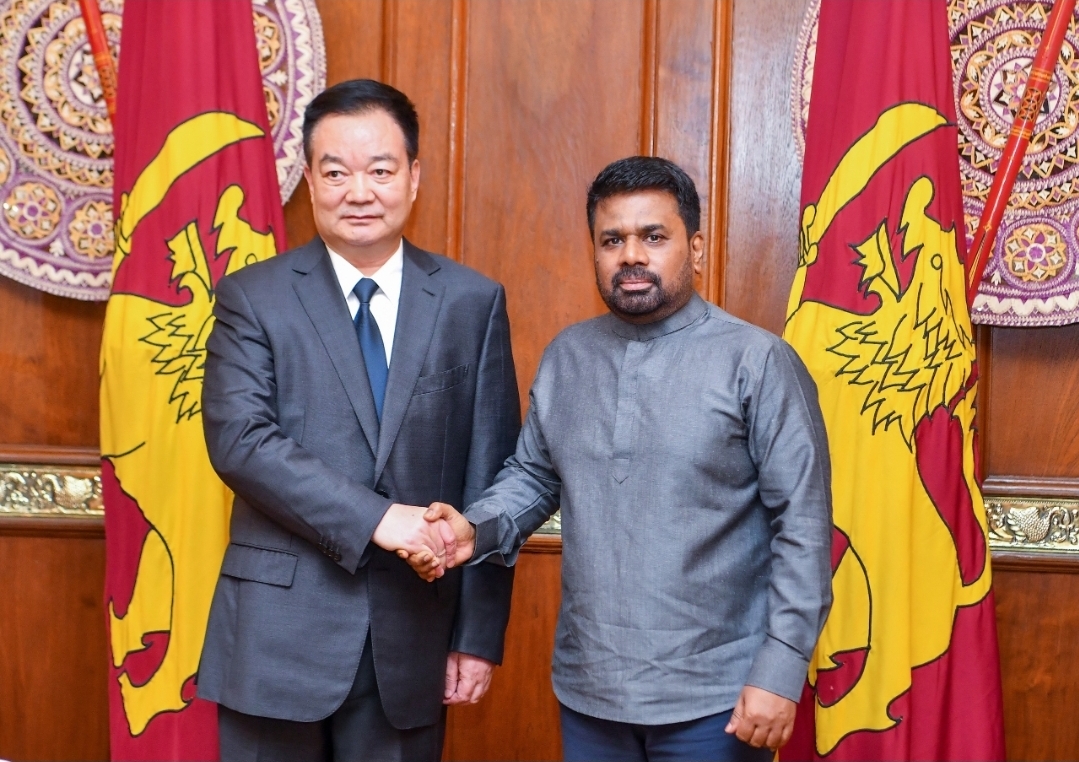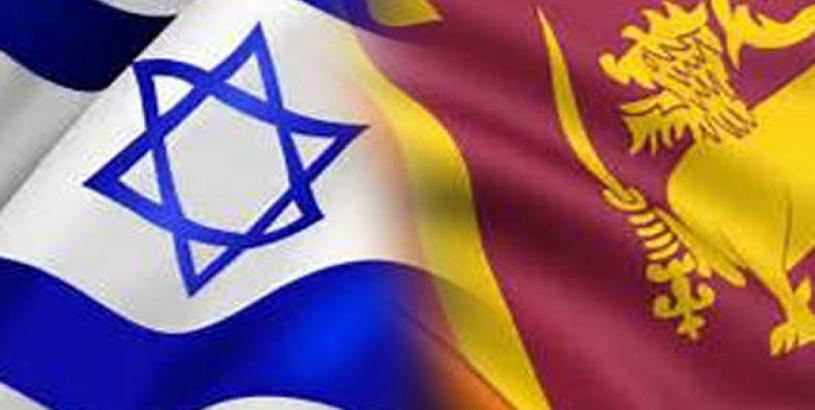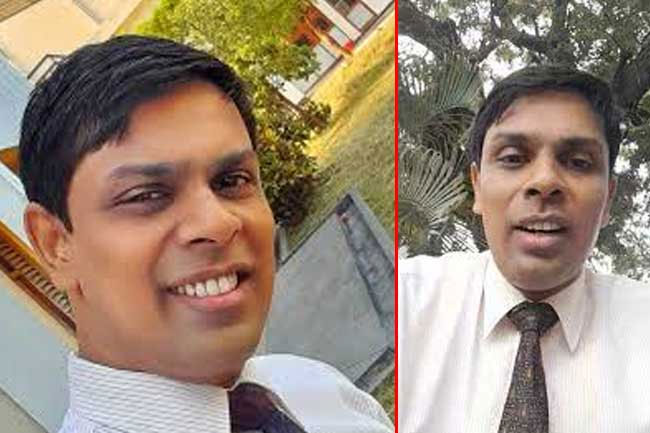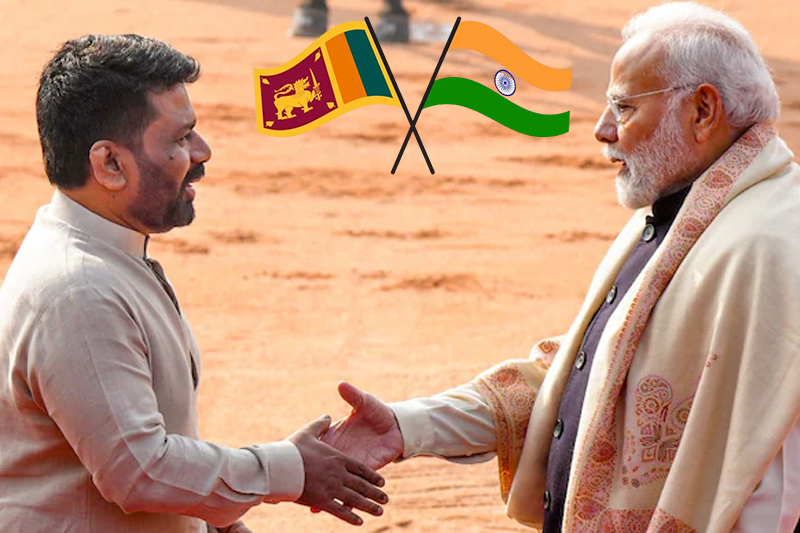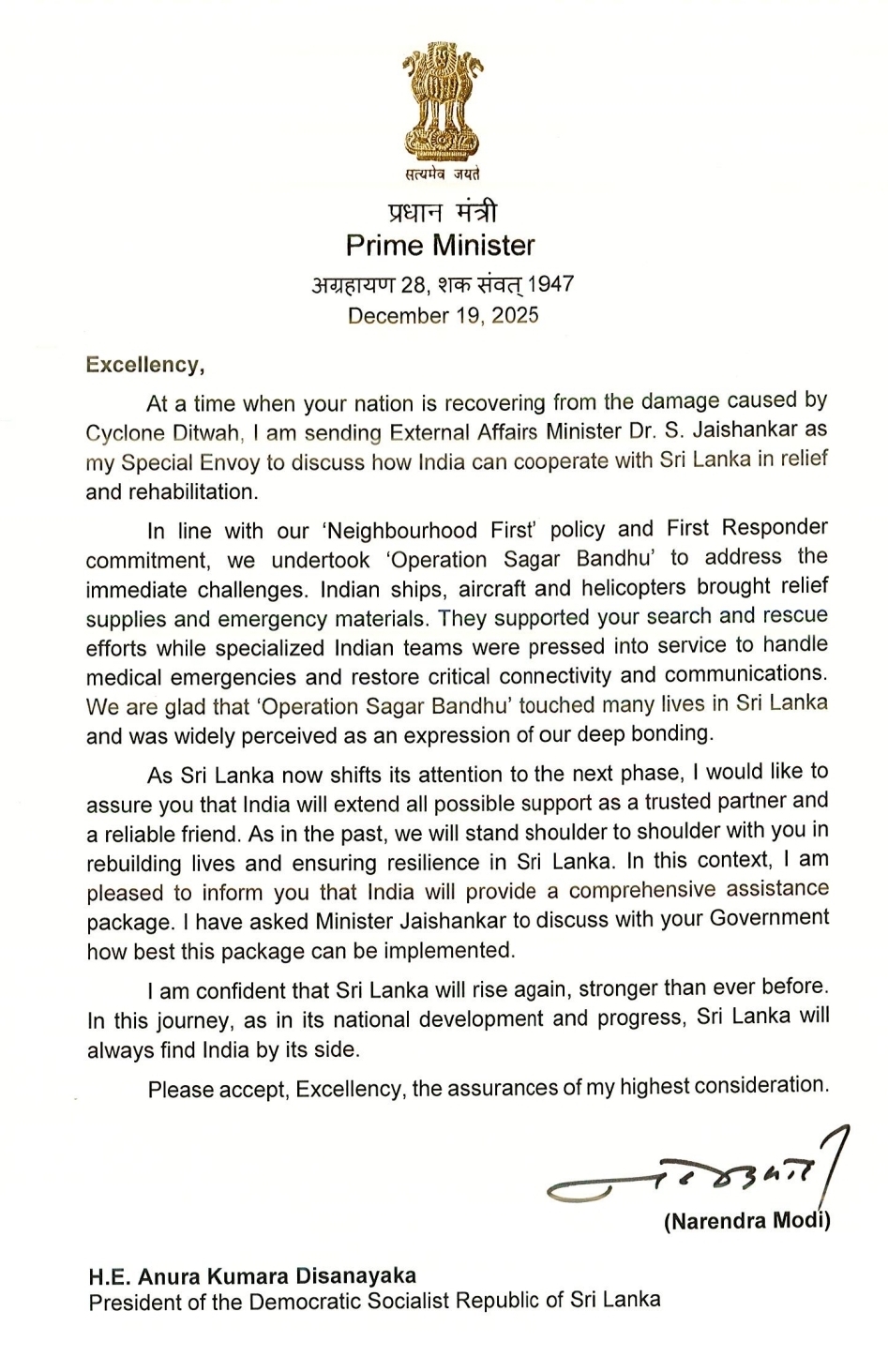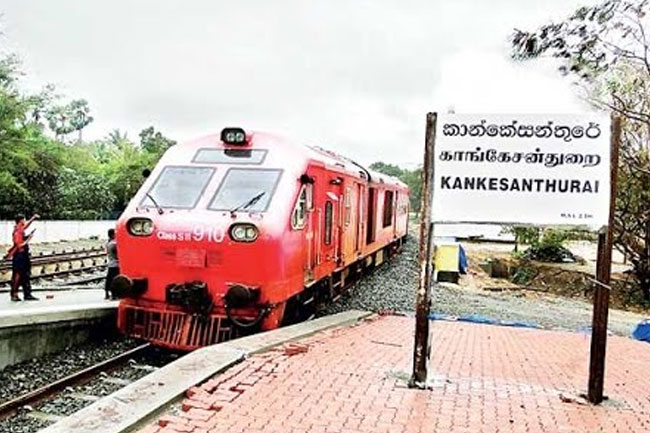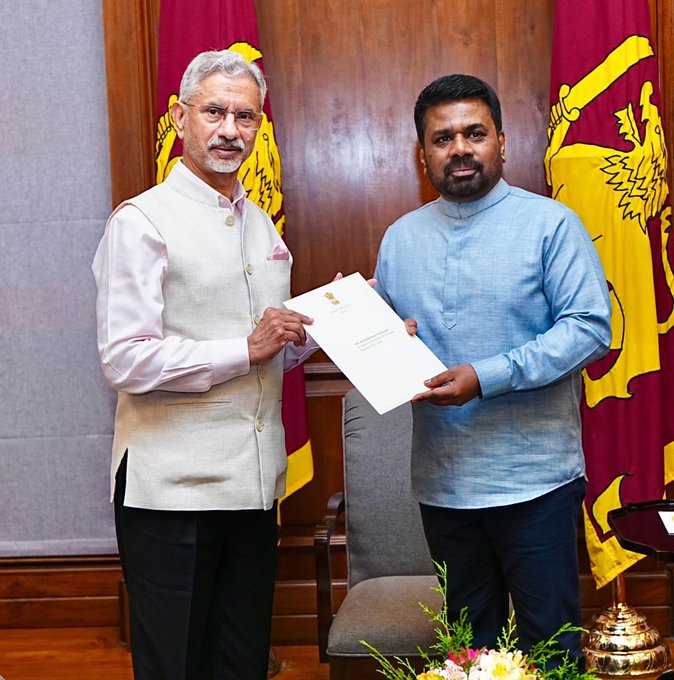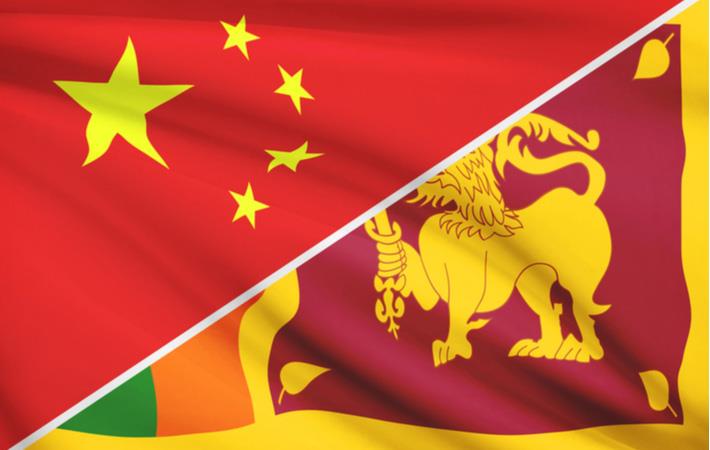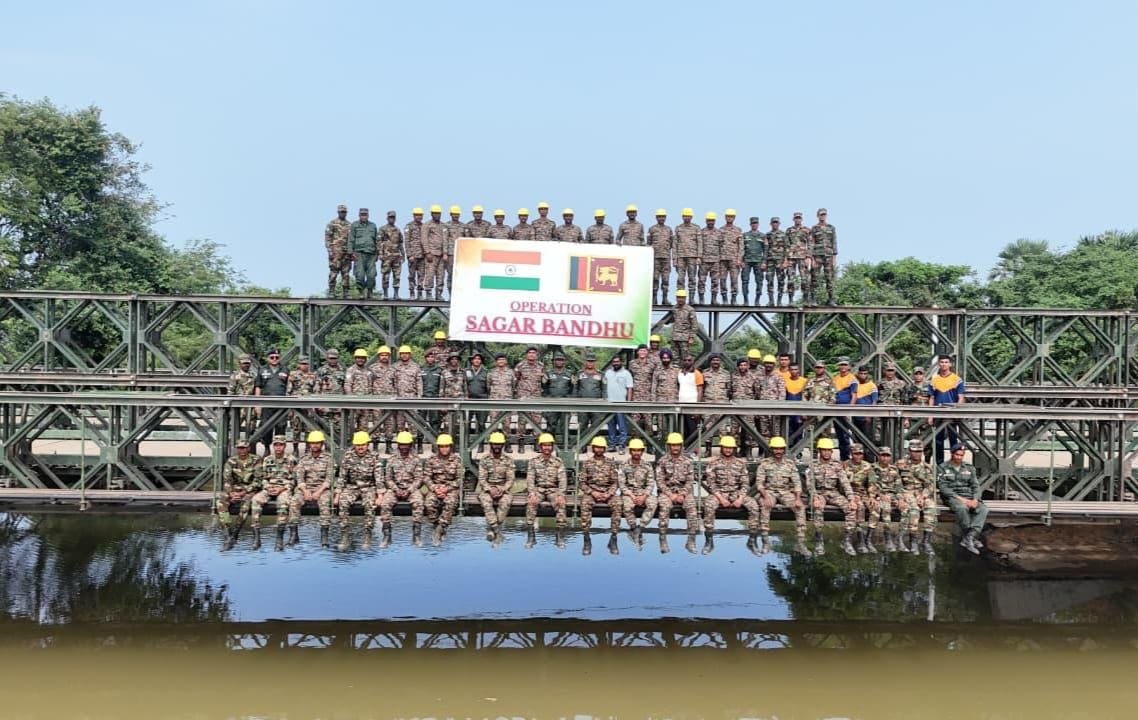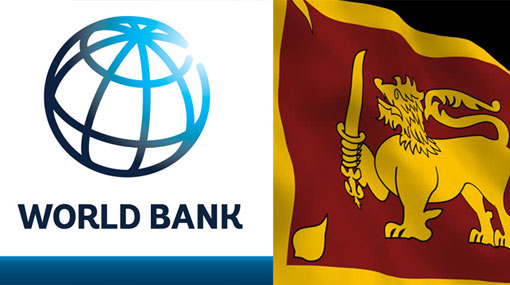China is prepared to extend all necessary assistance to Sri Lanka at all times and is ready to share its experience with Sri Lanka under the “Rebuilding Sri Lanka” programme, stated Mr. Wang Junzheng, Member of the 20th Central Committee of the Communist Party of China (CPC) and Secretary of the CPC Committee of Xizang Autonomous Region.
Mr. Wang Junzheng made these remarks during a meeting with President Anura Kumara Dissanayake at the Presidential Secretariat yesterday (23), while visiting Sri Lanka with a Chinese delegation.
At the meeting, President Dissanayake expressed his gratitude for the emergency and humanitarian assistance provided by China to Sri Lanka in the aftermath of the disaster. The President also appreciated China’s continued support during this difficult period, noting that such cooperation would further strengthen the long-standing close friendship between the two countries.
The President further briefed the Chinese delegation on the “Rebuilding Sri Lanka” programme initiated to restore livelihoods and rebuild the country.
Mr. Wang Junzheng stated that he will persist in collaborating with Sri Lanka, thereby enhancing the understanding and friendship that was established between the Presidents of both nations during President Anura Kumara Dissanayake’s recent official visit to China. He also mentioned that with the assistance of the Chinese government, he will continue to support the ongoing projects in Sri Lanka and initiate new projects.
He also noted that China would support key government initiatives such as the Clean Sri Lanka programme and the anti-corruption and bribery eradication programme. In particular, he emphasized China’s willingness to share its experience and provide necessary assistance to Sri Lanka in efforts to eradicate rural poverty.
Those present at the meeting included Chinese Ambassador to Sri Lanka, Mr. Qi Zhenhong; Mr. Peng Xiubin, Director General of the Bureau for Southeast and South Asian Affairs of the International Department of the Central Committee of the Communist Party of China; Mr. Bao Ting, Director General of the Foreign Affairs Office of the Xizang Autonomous Region; Ms. Wang Siqi, Deputy Director of the Bureau for Southeast and South Asian Affairs of the International Department of the Central Committee of the Communist Party of China; and, representing the Government of Sri Lanka, Minister of Labour and Deputy Minister of Economic Development, Dr. Anil Jayantha Fernando, Secretary to the President Dr. Nandika Sanath Kumanayake and Senior Additional Secretary to the President, Mr. Roshan Gamage, among others. (PMD)


